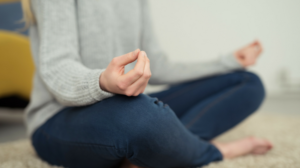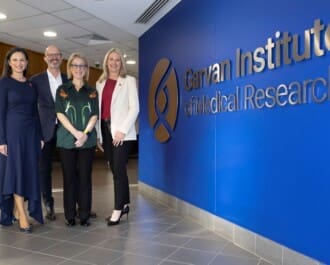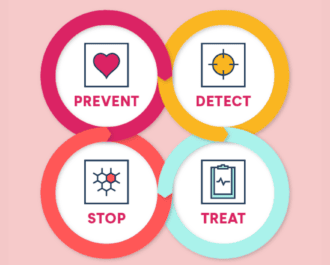
It’s very common for breast cancer patients to use complementary therapies during and after their cancer treatment to manage symptoms, prevent toxicities and improve their quality of life.
 Some of these treatments can be very beneficial, but many have no effect or can actually be harmful. A new review of complementary therapies for women and men with breast cancer has resulted in recommendations for using some of the ‘mind-body’ types of complementary therapies.
Some of these treatments can be very beneficial, but many have no effect or can actually be harmful. A new review of complementary therapies for women and men with breast cancer has resulted in recommendations for using some of the ‘mind-body’ types of complementary therapies.
Mind–body therapies are techniques designed to enhance the mind’s positive impact on the body. They can range from behavioural, psychological, social, expressive, and spiritual approaches and include yoga, meditation, massage and acupuncture.
Recommended complementary therapies
A team of researchers from the Society for Integrative Oncology in the United States looked at more than 80 therapies and put them into categories according to the scientific evidence supporting their effectiveness and safety in treating breast cancer.
Based on those findings, the following recommendations were published in CA: A Cancer Journal for Clinicians:
- Anxiety and stress reduction: Music therapy, meditation and yoga
- Depression and mood disorders: Meditation, relaxation, yoga, massage and music therapy
- Improve quality of life: Meditation and yoga
- Reduce chemotherapy-induced nausea and vomiting: Acupressure and acupuncture
The researchers found a lack of strong evidence supporting the use of ingested dietary supplements or botanical natural products as part of supportive care and/or to manage breast cancer treatment-related side effects.
The review is designed to provide easy-to-access guidelines to help doctors confidently prescribe complementary therapies in conjunction with conventional treatment.
“We are pleased to see this extensive review and consolidated evidence to support the effectiveness of some complementary therapies. However, as most alternative therapies have not been assessed for efficacy or safety, we encourage women to discuss using them alongside conventional treatments with their treating doctor,” says Dr Alessandra Muntoni, Director of Research Investment at the National Breast Cancer Foundation.
How the therapies rated
The review also provided a rating of the effectiveness of each complementary treatment. Therapies with an ‘A’ grade are recommended for a particular symptom and there is a high certainty that the patient will benefit significantly.
Meditation had the strongest evidence supporting its use and is recommended for reducing anxiety, treating symptoms of depression, and improving quality of life, based on results from five trials.
Music therapy, yoga, and massage received a B grade for the same symptoms, as well as for providing benefits to breast cancer patients. Yoga received a B grade for improving quality of life based on two recent trials. Yoga and hypnosis received a C for fatigue.
“The routine use of yoga, meditation, relaxation techniques, and passive music therapy to address common mental health concerns among patients with breast cancer is supported by high levels of evidence,” said Debu Tripathy, MD, chair of Breast Oncology at The University of Texas MD Anderson Cancer Center, and a past president of SIO.
“Given the indication of benefit coupled with the relatively low level of risk, these therapies can be offered as a routine part of patient care, especially when symptoms are not well controlled,” he said.
More News Articles
View all News


